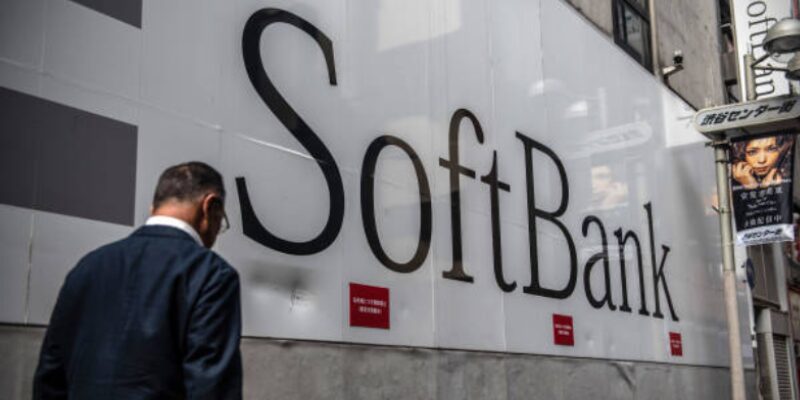SoftBank Group reported a surprising quarterly loss on Wednesday due to a decline in investments made through its Vision Funds. Additionally, the Japanese company’s revenue fell short of analysts’ projections.
TakeAway Points:
- SoftBank reported a 369.17 billion yen ($2.4 billion) unexpected net loss when LSEG predicted a 298.53 billion yen profit.
- A loss of 352.75 billion yen was recorded for the company’s Vision Fund investments for the quarter that concluded on December 31.
- In Milan, Italy, Amazon plans to open a “parapharmacy” with a variety of cosmetics and personal care products.
SoftBank losses $2.4 billion
On Wednesday, SoftBank Group reported an unexpected quarterly loss as investments made through its Vision Funds went down. Analysts’ projections of the Japanese company’s sales were likewise not met.
Here are Softbank’s results compared with LSEG SmartEstimate, which is weighted toward forecasts from analysts who have been more consistently accurate:
- Revenue: 1.83 trillion yen vs. 1.84 trillion yen
- Net loss of 369.17 billion yen ($2.4 billion) vs. a profit of 298.53 billion yen
The company’s Vision Fund investments clocked a loss of 352.75 billion yen for the quarter ended Dec. 31. They had posted a gain for the preceding two quarters.
The broader Vision Fund segment—which factors in administrative costs and fluctuations in currency, among other things—reported a loss of 309.93 billion yen during the quarter.
SoftBank reported a 2.1% quarter-on-quarter drop in its Vision Fund 1 public portfolio companies, primarily due to a decline in the share price of e-commerce company Coupang, while the value of its investments in private companies dropped 3.3%. Overall, the fair value of SoftBank’s Vision Fund 1 portfolio companies declined by 2.8% from the previous quarter-end.
Vision Fund 2 fair value fell by 3.7% from the prior quarter-end. Decreases in the share prices of public companies such as EV-maker Ola Electric Mobility and warehouse automation firm AutoStore outweighed a jump in the stock of food delivery firm Swiggy following its November 2024 listing.
In recent years, SoftBank has made a number of high-value investments in companies that have struggled or marked down their valuations.
It is now repositioning itself to take advantage of the artificial intelligence boom, where players such as Nvidia have benefitted from meteoric demand for chips and data center GPUs.
SoftBank is close to finalizing a $40 billion primary investment in OpenAI at a $260 billion pre-money valuation, sources recently told CNBC’s David Faber.
The new funding would see SoftBank surpass Microsoft as the artificial intelligence startup’s top backer, with OpenAI last valued at $157 billion by private investors in October.
SoftBank has already committed to spending $3 billion per year on OpenAI’s tech. The two companies also have announced a new joint venture called “SB OpenAI Japan,” which will market OpenAI’s enterprise tech exclusively to major companies in Japan.
SoftBank reported its quarterly earnings after trading closed at the Tokyo Stock Exchange. It’s shares gained 45% last year.
Amazon Launches A Personal Care And Cosmetics Store In Italy
Amazon is launching its newest brick-and-mortar venture with the establishment of a beauty and wellness products store in Milan, Italy.
The store is located in the city center of Milan and features a range of beauty and personal care items, as well as nonprescription drugs, Amazon said in a blog post. The first store, which is called Amazon Parafarmacia & Beauty, will open its doors to the public on Wednesday.
The store will be stocked with products from beauty and skin-care brands including La Roche-Posay, Eucerin and Vichy. There are also “Derma bars,” where shoppers can get a “complimentary digital skin analysis” of their skin type and condition and receive product recommendations.
Amazon says the store includes a section staffed by on-site pharmacists where shoppers can purchase “non-prescription, over-the-counter medications.”
By launching its first “parapharmacy,” the e-commerce giant is hoping to parlay its online success in the beauty and personal care category into sales in the physical world. Beauty and personal care items, which include everything from hairspray and cosmetics to deodorants and Q-tips, make up one of the fastest-growing verticals on Amazon.
The company began offering health and beauty products in 2000, but its selection was initially limited to most mass-market brands. It has since added more luxury brands, such as Estée Lauder and La Mer.
The new store format also marks Amazon’s latest experiment in physical retail. The company opened and then shuttered all of its bookstores, pop-up shops, four-star stores and apparel stores. It has also shrunk its footprint of Amazon Go convenience stores, shutting down a storefront in Woodland Hills, California, last month. In grocery, Amazon’s portfolio includes Whole Foods supermarkets and its own chain of Fresh stores.



































